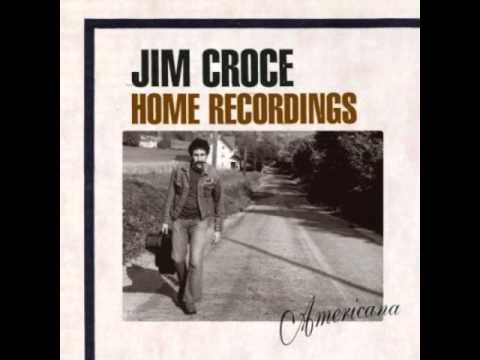Last week’s Bonus Round: “Living With The Blues” (aka “Livin’ With The Blues”)is a song on the late Jim Croce’s posthumous 2003 album “Home Recordings”. The songwriter is listed as “unknown” or Traditional” in various places, so I’ll assume it’s one of those folk/blues songs that just sort of got passed around years ago. I chose it for the Bonus Round because it fit with last week’s theme of home recording studios.
This week marks what some are calling the coolest spring on record here in the inland Pacific Northwest, but while that may be true, it doesn’t seem to have reduced the pollen count at all and as a result, my sinuses have been livin’ the blues as well. Today and tomorrow may be a little light on original content, but I’ll try to make up for that with some commentary on a bunch of cool links I have for you.
First - we’ve talked a bit about overcoming fears as a musician - stage fright, lack of self-confidence, dealing with setbacks, imposter syndrome, et al. Please take a look at fellow SubStack writer Brad Kyle’s recent post in his series on Stephen Michael Schwartz’ inspiring story of overcoming a sudden recording contract termination with the help of friends and collaborators here:
Never give up!
So, an eclectic mix of links as I sneeze and sniffle my way through a chilly morning here:
An insightful take on using an unexpected approach if you’re kinda stuck on a title or hook or internal lyrical dynamics of a section such as creating a more interesting bridge.
Here’s an excerpt from an email I received from CD Baby (cuz I’m on their email list) dealing with unfinished songs you may have (like me!) sitting around needing attention:
Credits: This was written by blogger Chris Robley and is copyrighted by CD Baby, apparently I can’t link to an email in it’s original form.
This next link:
is from an article on the Izotope website. Izotope is a company that makes and sells fairly high end “plugins” for “DAWs”. A DAW is a Digital Audio Workstation and just means (mostly) recording software. Apple’s GarageBand and Logic Pro X, as well as Avid’s Pro Tools are examples and there are many others. Plugins are software add-ons to a DAW that process the raw recorded audio file that’s created via recording vocals and instruments. DAWs come with a set of stock plugins that will do just fine for most home studio recordings, but as you gain experience, you may want to expand your selection of plugins. Beware! I’ve sometimes thought there should be a 12 step program for plugin buyers, there’s always another “must have” plugin!! My advice is to become proficient with your DAW’s stock plugins and when you have a pretty good mix of “stems” (the term for mixed, processed recorded tracks that haven’t been “mastered” yet), find out which plugins your producer/audio engineer/professional studio uses. Then decide if your stem tracks need just a little bit more effort using the same plugins your mastering engineer/studio uses. Then decide if that extra little bit is worth the investment in plugins or just leave it to the pros. Your mileage will vary.
Ok, upfront this is “sponsored content” - it’s there to sell you a package called “Pianote”, which I don’t own or have any financial connection with (that’s true for any of the links I provide, though I do purchase products or subscriptions to others, including American Songwriter, where this link comes from). That said, there is some insight in the article into why guitarists should have some familiarity with the piano. Just as I think acoustic guitar players should own an electric guitar for “reasons” (and if you can afford it), even a relatively inexpensive electronic keyboard can give you a different perspective on music in general, and especially music theory. If you can swing it, a MIDI capable keyboard is easy to connect with your DAW, and you can add highly editable keyboard tracks to your music. A few weeks ago we talked about how the rock band The War On Drugs craft a unique sound with piano/keyboard “pads”.
Here are a couple of ways to get MIDI keyboards or other piano sounds into your DAW. Either works, but MIDI offers you more ways to manipulate and edit your keyboard tracks.
We’ll likely spend some more time with MIDI and why using your own created tracks rather than loops or beats from your DAW may pay off in the long run.
For today I’m going to have some tea and chill with some Dave Brubeck on the stereo, and try to be back without sinus issues tomorrow!
Bonus Round: an instrumental approach to a better winter!!
See you tomorrow!!
Cheers and keep playing!
Michael Acoustic






Thanks for the shout-out, Michael! I forwarded this edition to Stephen, and I know he'd love the fact that his past struggles and resultant victories can help musicians and songwriters today!
Friday, we'll be dropping the story of Stephen's late '70s collab with Carole King's "Tapestry" lyricist Toni Stern, including a rare live demo of Stephen singing their song, "I've Just About Given Up Hope" (taped live at The Ice House in Pasadena, late '70s)! In the meantime, Michael, feel better, and thanks again!😁🎶